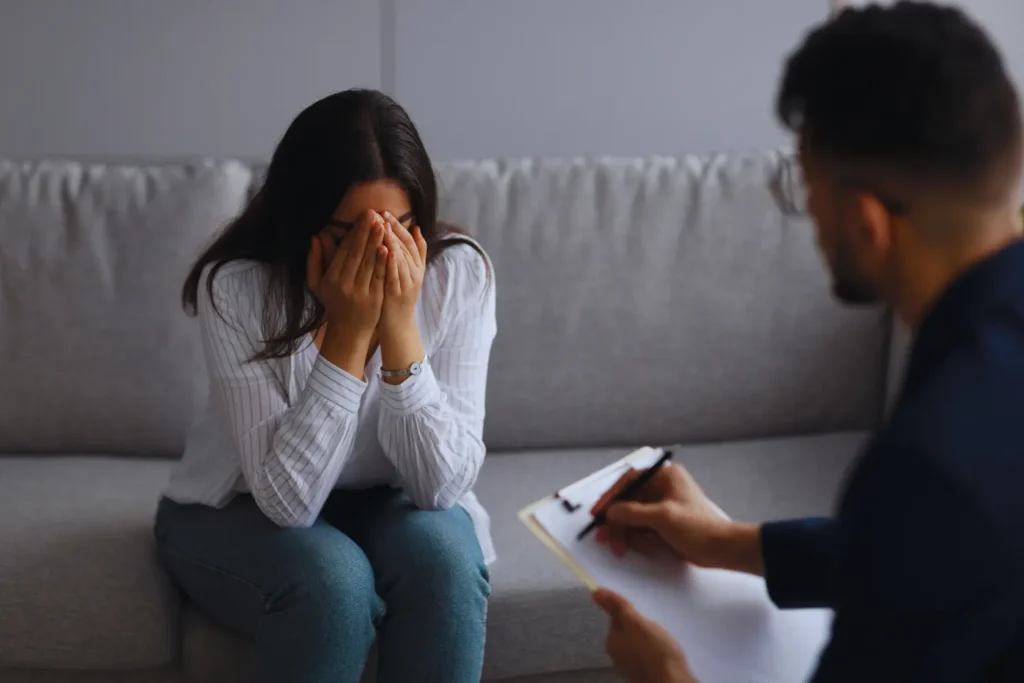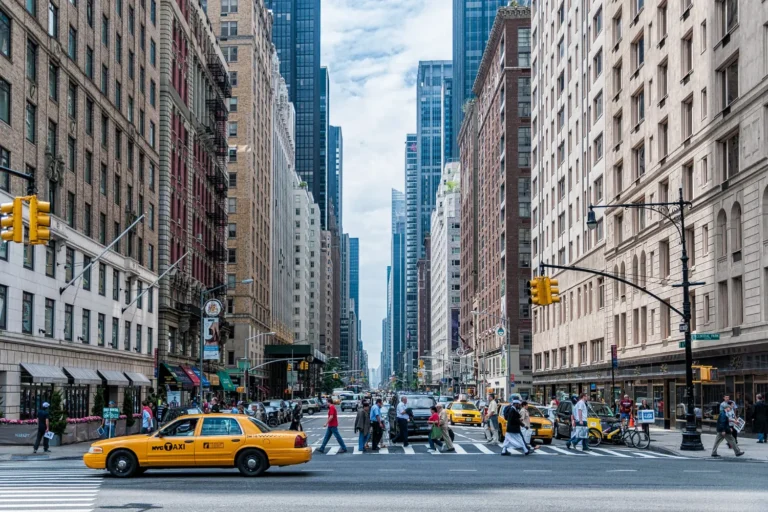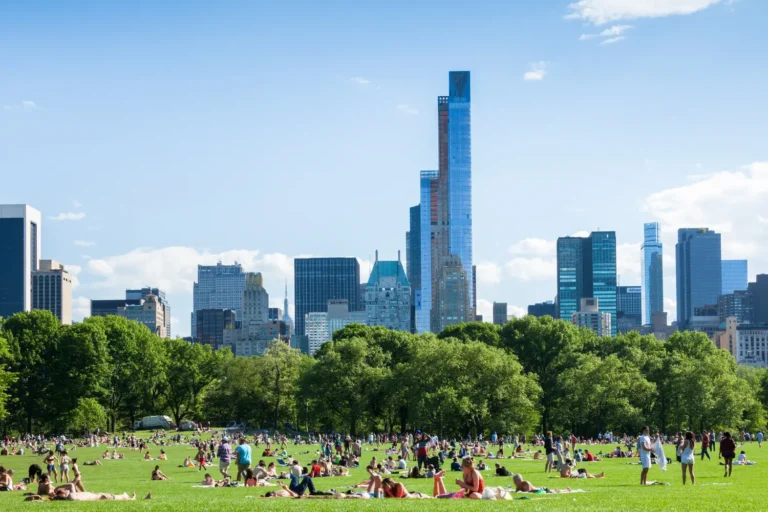
Manhattan, NY Addiction Treatment Resources
Local Resources & Information to Start Your Recovery Journey
If you are in Manhattan and need help now, call (631) 849-8686
Help Is Available for Those Struggling With Addiction in Manhattan

Surrounded by the Hudson, East, and Harlem rivers, Manhattan is one of the city’s five boroughs and a global hub of commerce, finance, and culture. The heart of the “Big Apple,” Manhattan features iconic landmarks like Times Square, the Empire State Building, and Broadway.
Unfortunately, Manhattan residents are struggling with drug and alcohol addiction like the rest of the country, but addiction treatment resources in Manhattan offer help and hope for recovery.
Types of Addiction Treatment in Manhattan
Addiction treatment centers in Manhattan provide diverse treatments to help with each stage of recovery. Here are some treatments you can expect:
Withdrawal from some substances can be intense and difficult to overcome. Detox offers a medical team to help alleviate symptoms and ensure you’re as safe and comfortable as possible during this process.
Detox helps with addiction treatment, but it’s not enough on its own. Residential programs provide 24/7 supervision and care to ensure you can focus on recovery and address the psychological factors of addiction.
The high stress and high stakes of the healthcare profession can contribute to addiction. Healthcare professional programs were created for these individuals and offer unique care tailored to their specific challenges.
Recovery continues long after addiction treatment is complete. Continuing care ensures that you have the resources for mental health and wellness at each stage of the process for sustained sobriety.
Medication-assisted treatment (MAT) offers medication specific to different substances to help with cravings or the lingering effects of withdrawal, ensuring you can focus on your treatment comfortably.
Aftercare and alumni programs are part of continuing recovery after addiction treatment is complete. Though the specific programs vary, they often include relapse prevention, skill building, alumni networks, peer support, and more.
How to Choose the Right Treatment Center for Your Loved One in Manhattan
Choosing the right treatment center is a big part of your recovery success. Here are some things to consider:
Accreditation and licensing ensure that the treatment center is committed to the highest standards of care set forth by independent state and national bodies.
Many people in recovery need different levels of care as they progress through treatment. Look for programs that offer different levels of care to ensure you have the intensive treatment you need at different stages.
Dual diagnosis treatment addresses addiction and other mental health conditions simultaneously, such as depression or anxiety, instead of individually. If you struggle with co-occurring disorders, dual diagnosis treatment can promote better outcomes.
Consider where you want to go for addiction treatment. There are benefits to staying close, such as having friends and family for support, but some distance can remove distractions and help you focus on your recovery.
If you have insurance coverage for addiction treatment, make sure you choose an in-network provider. If you don’t, consider centers that offer payment plans and other alternative payments to help with the costs.
Continuing Recovery Care & Sober Living Programs in Manhattan
Transitioning from a treatment facility to everyday life can be challenging. In some cases, this is a vulnerable time for relapse as the stress of day-to-day life becomes too much. Aftercare programs in Manhattan are designed to prepare you for these experiences and ensure that you have the resolve to continue with your sobriety.
If you need more support, sober living homes in Manhattan can be a crucial part of this transition. While the homes vary in accommodation and amenities, they emphasize accountability with curfews, house rules, chore lists, and mandatory meetings.
Contact Admissions TodayEmergency Services for Addiction in Manhattan
There are risks to drug and alcohol addiction, including potential overdose and severe mental health crises. Emergency care isn’t a substitute for addiction treatment, but it offers short-term care and support during a crisis.
Community Resources for Mental Health & Addiction
NAMI NYC
Mental health resources and support for residents of Manhattan.
Visit siteNew York City Department of Mental Health
Mental and behavioral health referrals and resources.
Visit siteCommunity Access, Inc Crisis Respite Center (Manhattan)
Short-term care and an alternative to emergency hospitalization for mental health crises.
Visit siteMobile Crisis Team (Manhattan)
Care and short-term management for severe behavioral crises.
Visit site988 Suicide and Crisis Lifeline
NYC 988
Free, confidential crisis counseling, mental health, and substance misuse support and referrals 24/7.
Alcoholics Anonymous
SMART Recovery
Refuge Recovery
Narcotics Anonymous
Narcan Classes and Overdose Prevention Training

Local Stats You Need to Know
The entire country is in the grips of the opioid crisis, including Manhattan. In the past decade, the number of drug-related overdoses has been on the rise, skyrocketing in 2020. The opioid-related deaths in New York increased by 44% in 2020, then reached 68% in 2021.[1] Opioids like fentanyl and prescription painkillers were the primary cause.[2]
Within the state, New York City had some of the highest rates of overdose deaths. There were 3,026 overdose deaths in the city in 2022 – the highest number since the data has been recorded.[3] In Manhattan, 466 residents died of a drug overdose, 77% of which involved fentanyl, 53% of which involved cocaine, and 41% of which involved alcohol.[4]

Sober Activities in Manhattan
Manhattan has no shortage of things to see and do, even if you’re avoiding drugs and alcohol. Here’s some inspiration for how to spend your time in the city:
- Take in the view from the Empire State Building.
- See masterpieces of art at the Metropolitan Museum of Art.
- Take a stroll on the High Line.
- Have a picnic in Central Park.
- Visit the 9/11 Memorial & Museum.
- Take a cruise around the Statue of Liberty.
- Shop and visit famous landmarks in Times Square.
How to pay for addiction Treatment in Manhattan

If you’ve taken the first step in getting help, you don’t want to stress over how you’ll pay for treatment. If you have insurance, many providers offer coverage for addiction treatment, in whole or in part, but it depends on your provider, the treatment facility, your plan, and more.
Insurance companies usually have in-network providers that provide lower-cost services to insurance plan members. This can help you save on your treatment. You can choose an out-of-network provider, but you may have higher expenses for your treatment.
If you don’t have insurance coverage for addiction treatment, there are alternative payment options. Treatment centers understand that costs can be a barrier for people seeking help, so many offer payment plans, income-based fees, or other forms of financial assistance. You can also look into state-funded grants and scholarships for treatment.
Frequently Asked Questions About Attending Substance Use Disorder Treatment in Manhattan
How Long Is An Addiction Treatment Program?
The length of stay in an addiction treatment program can vary by your treatment plan, the treatment facility, and other factors. It can also change based on how you progress. However, the typical length of stay is about 30 days, though outpatient and aftercare programs can extend the timeframe.
Will My Addiction Treatment Be Private?
Yes, addiction treatment – like other healthcare – is completely confidential. You don’t have to worry about any information you share being disclosed outside of your medical team.
Why Should I Receive Addiction Treatment?
The decision to enter addiction treatment is personal. Some people seek treatment because substance abuse has taken a toll on their health, job, or personal relationships. Others may seek treatment because they have been unable to control their addiction.
Start Your Recovery in Manhattan
Reach out now to start your recovery.